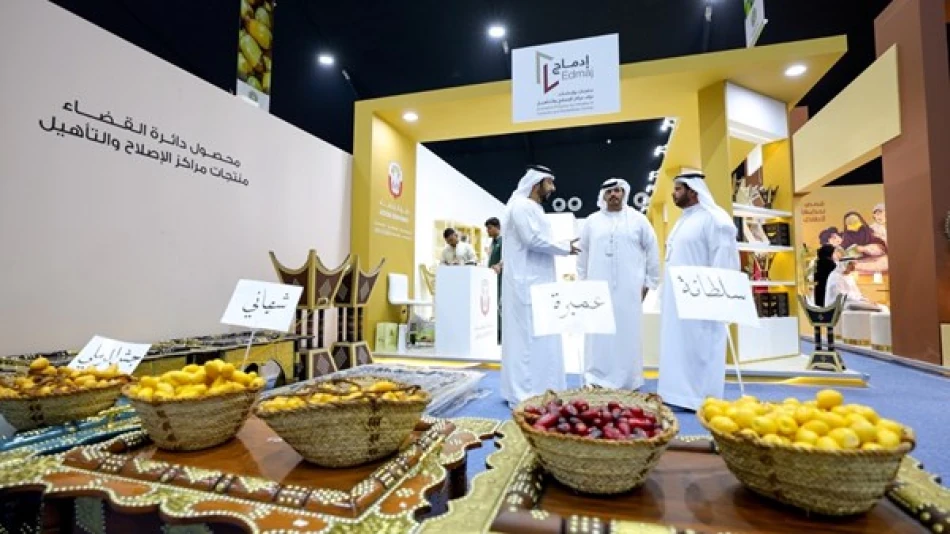
Abu Dhabi Judiciary Participates in Liwa Date Festival: Unraveling the Rich Cultural Celebration
Abu Dhabi's Justice Department Showcases Prison Rehabilitation Through Heritage Festival
Abu Dhabi's Department of Justice is leveraging the UAE's largest date festival to demonstrate how traditional crafts are being used as powerful rehabilitation tools within the emirate's correctional facilities. At the 21st Liwa Date Festival, the department is displaying products made by inmates, signaling a progressive approach to prisoner reintegration that combines cultural preservation with criminal justice reform.
Cultural Heritage Meets Modern Rehabilitation
The department's participation in the festival, organized by the Abu Dhabi Heritage Authority in the Dhafra region's Liwa city, represents more than just community outreach. By showcasing dates and traditional handicrafts produced within correctional centers, officials are highlighting a rehabilitation model that grounds inmates in Emirati cultural identity while teaching marketable skills.
This approach reflects the UAE's broader philosophy of using cultural heritage as a foundation for social cohesion and individual transformation. The displayed products demonstrate inmates' craftsmanship and creativity, serving as tangible evidence of the rehabilitation programs' effectiveness.
Strategic Rehabilitation Through Skills Development
Economic Integration Focus
The initiative aims to equip inmates with practical skills that facilitate positive social reintegration after their sentences conclude. By focusing on traditional crafts and agricultural products like dates—a cornerstone of UAE heritage—the program addresses both economic necessity and cultural continuity.
This model mirrors successful rehabilitation programs in countries like Norway and Germany, where vocational training significantly reduces recidivism rates. However, the UAE's approach uniquely emphasizes cultural preservation alongside skill development.
Heritage Preservation Strategy
The department's commitment to preserving traditional crafts and handicraft industries within correctional facilities serves dual purposes. It maintains cultural practices that might otherwise fade while providing inmates with connections to their national identity—a factor research shows can reduce reoffending rates.
Broader Implications for Criminal Justice Reform
Abu Dhabi's public showcase of prison-made products suggests confidence in its rehabilitation model and willingness to challenge stigma around formerly incarcerated individuals. This transparency contrasts with many jurisdictions where prison labor remains controversial or hidden from public view.
The timing of this initiative aligns with the UAE's Vision 2071, which emphasizes human capital development and social cohesion. By demonstrating that correctional facilities can contribute to cultural preservation and economic productivity, the program positions rehabilitation as a national asset rather than merely a social obligation.
For other Gulf states grappling with modernization while preserving tradition, Abu Dhabi's model offers a framework for using cultural heritage as both a rehabilitation tool and a bridge between past and future. The success of this approach could influence regional criminal justice policies and reshape public perceptions of correctional institutions' role in society.
Most Viewed News

 Layla Al Mansoori
Layla Al Mansoori






